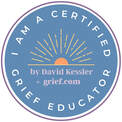|
“The blow of a whip raises a welt, but a blow of the tongue crushes the bones. Many have fallen by the edge of the sword, but not as many as have fallen because of the tongue.” --Ben Sira 28:17-18
The past couple of posts have discussed the work of Brené Brown and the research she has done on shame. This week, we explore how shame manifests in the way we talk to others. As I read Brené’s work, one of the things that struck me was how powerful our words are. When we ourselves are not feeling good and are in a place of shame, an often automatic response is to shame others. Shame is a tool to control others and is often used as a form of discipline. Although we no longer use the ‘dunce hat’ on the child sitting in the corner as a form of punishment, many of the techniques and ways we discipline are equally as shaming. This post is difficult for me to write, because as I start looking back at things that I said and did as both a parent and teacher, I now realize how much shaming I did, often in the name of discipline. It is not easy for me to look back and recognize how hurtful some of the comments that I made must have been. I remember saying things like, ‘How old are you?’ and ‘Look at how nice everyone else is sitting.’ While at the time I was attempting to get my students to behave, I now understand the magnitude of the shaming words I spoke. When my son picked out an outfit that didn’t match and I argued with him to change into something more ‘appropriate,’ there was shame in implying that his choice of outfit was not good enough. Over and over I can recall times when I shamed. Increasing my awareness of the power of shame has affected the way I talk to others. I am now much more aware of whether my words are building someone up or shaming them. It is not easy though. I still find myself shaming without thinking about it until later. Being critical, judging or laughing at someone are all ways that we shame without realizing it. They are easy traps to fall into. Shame is a message that there is something wrong with me and I’m not lovable. It isn’t hard for someone to get the message of shame just from the tone of my voice, the way I look at them or my body language. We don’t even need words to shame! Becoming aware in the moment of the interaction takes practice. It is frightening to think about how many times I use shame without my conscious awareness of it. What would change if we all thought about the destructive force of shame and increased our awareness of it before speaking? Are you ready to communicate without shame?
0 Comments
Leave a Reply. |
Archives
April 2020
Categories
All
|
 RSS Feed
RSS Feed




